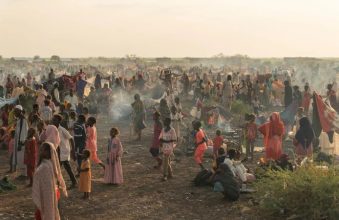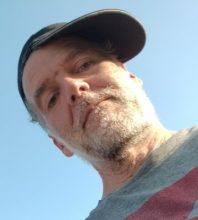The ABCs of Sustainable Development Goals and Sudan’s situation IX

Goal 8: Promote sustained, inclusive and sustainable economic growth, full and productive employment and decent work for all
By Dr. Hassan Humeida
Kiel, Germany: Sustainable Development Goal 8 seeks to provide decent work and to promote sustained, inclusive and sustainable economic growth, full and productive employment and decent work for all.
According to experts in labor and economics, this can be achieved through the following four points (I) achieving full and productive human employment in various sectors; (II) reducing the wage and salary gap between the genders and reducing the unemployment rate among young people; (III) ending child labor in all its forms, formalizing work in all sectors of work, and encouraging self-employment and the ability to create and innovate in all types of work; and (IV) encouraging medium-sized, small, and smaller enterprises to work and supporting them with appropriate financial services in order to ensure sustainable production.
This goal seeks to combat slavery and human trafficking, starting with child labor, conscripting them and using them as human shields in conflict and war zones. The relevant goal also aims to guarantee labor rights, providing a suitable and safe work environment for workers in various fields, and rewarding workers with wages and salaries that are sufficient to meet the requirements of daily life.
This goal also cares about migrant workers and their future, especially those working in unstable fields of work.
In addition, the eighth goal of the Sustainable Development Goals seeks to improve efficiency in global wealth and resources in the areas of consumption, production and renewal, and to reconsider the issue of the equitable distribution of wealth and resources between the producers, marketers and consumers, taking into account the citizen’s need for them, in particular the need for them locally in the production areas.
By examining some of the statistical data related to this goal, we find that the vast majority of the world’s poor, whose number is estimated at about 2 billion people this year, depend for their livelihood on marginal occupations that do not meet the individual’s necessary requirements. This places the issue at the center of an important question about its role in meeting the family’s requirements, future, and ways of growth.
When we talk about poverty, we are referring to more than one type, the most severe of which is extreme poverty that affects about 215 million people globally. The individual’s cash earnings do not exceed $2.15 per person and per day and if there is a source of daily income (The figure was adjusted from $1.90 to 2.15 in 2022).
The vast majority of the individuals in such a case are women who earn 12.5% less than men. They live in more than 45 countries. The global wage gap is estimated at 23%. In comparison, women’s participation in the labor market is about 63% compared to 94% of men’s participation. This year, more than 200 million people are unemployed.
In the field of global development, this is a waste of human energy capable of working that impacts negatively the fight against hunger and poverty, the initial precursors to the loss of shelter, falling into drug crimes and committing crimes such as human trafficking, and a primary threat to the future of sustainable development and achieving it globally.
If we take Sudan as an example of a developing country with a medium-sized economy, we find that it is rich in wealth and resources, but has not benefited from in a way that strengthens the national economy or satisfies the citizen.
Regarding the acquisition of fossil energy as a driver of the national economy, the two parts of the country have not yet reached an agreement that would make them benefit from this energy, which after a few years will be among the dead types of energy.
If we look at the alternatives to this energy in Sudan, both its northern and southern parts, we find multiple types that can be used in important areas, especially the requirements of society, movement, and production.
Sudan may be able to benefit from other sources of available energy, including types of alternative energy such as solar energy, wind energy, groundwater energy, current turbine energy, and watershed energy that are available instead of fossil energy.
Sudan, both as an agricultural and pastoral country, has a wide scope for the possibility of extracting bioenergy from agricultural and animal waste represented by biogas, especially in areas of plant and animal production.
Through it, modern industrial work turbines can be rotated for production locally and export globally, with specifications that meet the open world markets requirements for high-quality plant and animal products, of organic origin (organic products) and free of laboratory treatment and chemicals that are harmful to health.
The extraction of raw materials and the earth’s treasures of precious metals also depends on the availability of sufficient energy, which may contribute to a productive boom in Sudan, strengthening its national economy and making it possible to emerge from poverty in this large country, rich with resources and wealth.
If the basic components of the economy are available in Sudan, the work environment will improve and will be suitable for all groups looking for work.
Here, workers of both genders can have access to modern service institutions that have comfortable workplaces and equipment to complete the work in the best possible way and in record times.
This is after correcting important stations in the work sector, starting with the workplace, ways and means of reaching it (transportation, road network, location, distance), and includes performing equipment, instead of old and outdated equipment.
This will reflect positively on the performance and health of workers who will continue to work without getting bored or reporting sick in relation to the nature of work and the environment of the workplace.
Appropriate work, in its narrowest definition, is the work that a person goes to every day with a high level of satisfaction and without complaints.
It also includes the love of work when the worker is attached to his work and devotes himself to it, and misses it if he does not go to the workplace for a single day.
This indicates work in a spirit full of passion for productivity, which is an integral part of the aspects of global sustainable development that the world wants to see achieved within the next seven years for the sake of local and global sufficiency.
There are many practical sectors in Sudan that lack the requirements for suitable work in its simplest form. This is for several reasons, not all of which can be mentioned here.
If we examine the most important societal work sectors in Sudan and limit them to education, health and production, we find that there is an urgent need for reform in the work environment in these three areas.
An inappropriate workplace represents a major obstacle in the educational field. It provides appropriate classes for a reasonable number of students, in which the teacher can complete his work in a way that suits him and them. It also provides an appropriate office that allows the teacher to prepare the lessons for his students every day.
A similar thing applies to the university lecturer who may be more in need of equipped laboratories in which his experiments and research are conducted and help him keep pace in scientific research.
Doctors and workers in the important health field face major problems, including the availability of a place to receive patients for treatment, the availability of the treatment necessary to preserve life, and the equipment and devices necessary to save lives.
All of them are considered rare or almost non-existent, and their status varies between rural and urban areas, and is sometimes similar between cities, no matter how large they are.
Whenever they are available, the prices are so high that not every patient on an average daily income will be able to pay the expenses.
In the production fields, we find that there is a major deficit in providing sufficient energy for production, equipment and machines that make it possible and affordable.
This resonates with the breakdown of equipment and machines and the lack of spare parts that cause a complete breakdown in work. Production is disrupted and this at times impacts the most important products.
Let us go further and mention the people from Sudan who work in the fields of raw materials and in the mines for the expensive products in global markets.
Those who come to these areas are under duress in search of work and wish to escape the burdens of poverty and hunger.
However, because of the need, they do not realize that they themselves will later pay the highest price with their precious health, by obeying the profit-making companies entrusted with production that do not care about the safety of the workers and do not insure them in case their health is one day affected by the work environment.
There is nothing wrong with work, but the fault lies with the local and international companies that employ and enslave workers to work in a deadly environment that is not suitable for living beings, whatever their species, let alone the human beings whose lives and safety are considered sacred by all heavenly religions.
Here we specifically mean young people who work long hours for low wages, for the benefit of rich countries that do not care about the person of sub-Saharan Africa in any way.
They are rather concerned with their resources and wealth and the psychological and physical destruction of their capabilities as a working human force (Where are human rights at work?).
They are the young people who work in the fields and mines in Sudan for well-known companies, in inappropriate, humid work areas that do not allow light to enter, and lack escape corridors, safety routes, and means of first aid and life-saving in times of collapses, accidents, debris disasters, drowning, and fire.
Moreover, these companies not only employ young people to extract raw materials from the ground and from among the rocks, but also wash and filter them from dirt and sediments.
For example, in gold mining, they use mercury (II) cyanide, a highly poisonous compound of mercury and cyanide that seriously harms the mucous membranes, lungs, skin, senses of taste and smell, and the central nervous system.
Sudan’s position on the Sustainable Development Goals, which the United Nations is working to achieve in less than the next seven years, including the eighth goal, “Decent Work and Economic Growth,” is that it is not possible to achieve decent work and a good economy in the absence of lasting peace.
Achieving such goals requires spreading peace, not only in Sudan, but also in all the strategic geographic regions for peace, especially in Africa.
This calls on the United Nations to stand with Sudan as a sovereign country and a long-standing member of the United Nations, so that it can overcome the ordeal in which it has been pushed.
This can be achieved by laying the foundations for a lasting peace that builds on Sudan’s unity and cohesion, and works to evacuate the homes of intruders.
It also calls for the return of life to villages, cities and the capital, and the provision of means of protection and security for the displaced Sudanese citizens in their own country and in neighboring countries.
Building a strong economy after ending the war supports the establishment of an ideal and robust democratic system that will be a model for everything possible after some time.




